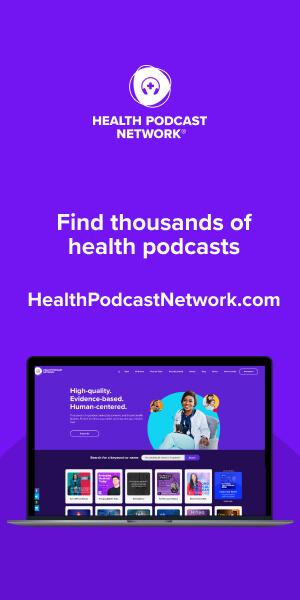Interview with Eugene Borukhovich
I had the pleasure of meeting with Eugene Borukhovich at the recent Health 2.0 conference in Santa Clara, CA on September 17th, 2019 to discuss updates regarding this year’s GA4 program and his perspectives on the current digital health landscape. Eugene is a serial intra- and entrepreneur currently serving as a Global Head of Digital Health (G4A) at Bayer and an advisor to numerous digital health startups.
Q1: I know you’ve made some recent updates to the G4A program this year, like the group track and advanced track, tell me more.
Eugene: I always joke around that the team itself within the large Bayer, is almost like a startup. We have pivoted every year as the digital health market itself is maturing. This year, the key change in our startup partnership programs was to simplify the approach and hence we created Growth and Advance Tracks.
The Growth track is the more typical accelerator type of model and the startups get 75K EUR convertible note and all the mentoring from our executives and external mentors and advisors. In the Advance track, we partner very closely with our P&L challenge owners, as there needs to be a sense of ownership and decision making to scale some of these relationships.
So I can’t disclose the finalists for either track, but we are literally a few weeks away from our Signing day. We will be announcing all the companies on October 10. It is currently still confidential and we will publish that on the 10th.
Q2: Can you tell me more about the nature of the companies and how it has changed over the years?
Eugene: Sure. So, if I rewind all the way back, the G4A (formely Grants4Apps) was literally started as grants for apps six years ago. Then it became the first pan-European digital health accelerator in Life Sciences Industry. The following year, it was opened to the world to come to Berlin for the program. In 2017, we introduced our commercially focused program (Dealmaker), which now evolved to Advance track.
I’ll fast forward. There’s a couple of lessons learned, especially on the commercial program side.
Digital health has matured tremendously. As we are at the Health 2.0 conference, the early morning discussion was, it’s not enough to have just a tech platform. And we even qualified during our open application season that it’s not enough to be one or two founders that are techies. We are looking even at the earlier stage as a very cross expertise team because we’re still talking about people’s health. So that’s probably one of the biggest pivot points where we’re getting with my team much, much deeper into what could be that commercial model with these startups.
So that is one of the biggest changes that we made. And that’s a little bit of the history of us evolving. And the kind of the short version is, as we saw the digital health market mature, we realized that this is the time to really start scaling these relationships. And hence the much deeper dive into the selection process with company’s stakeholders internally.
Our challenge is actually not finding brilliant entrepreneurs out there, the key challenges are inside of the organization. So that’s what we’re trying to change this year.
Q3: Tell me more about the role of digital therapeutics in digital health.
Eugene: I think there’s always confusion around the nomenclature. For the people that are living and breathing it, it becomes common sense but for the masses, you know, if you walk out on the street, nobody will know what a digital therapeutic is and they probably won’t even know what digital health is.
So the way I look at it is digital health is that it is a bit of a current buzzword that kind of fits everything that has something technology related to it. And we can argue one way or the other.
And regarding a digital therapeutic, of course, Megan Coder and her team have been leading the way. As that evolves, I am looking at it as we need to actually expand it just a bit on even on the consumer facing side, but still clinically validated and evidence based. The way digital therapeutic as defined right now, it is reimbursable, but to me at the end of the day, if it’s reimbursable out of pocket, or through the system, it shouldn’t actually matter if it fits a need and has clinical evidence backing it.
Q4: One of the topics that came up this morning is, as physicians, we are data saturated? Is that data actually clinically actionable and how does that actually change the standard of care for the outcome of the patient?
Eugene: So I have high hopes for digital therapeutics, or whatever it will be called in 3-5 years. The concept of software driven evidence based and clinically validated into the physicians’ workflow, but I would also argue that the extension of it into the healthcare consumer workflow.
Q5: So you are talking about a digital therapeutic, being direct to consumer, however, a lot of them have restrictions because they need a prescription. So we are then dealing with the barrier of physician engagement and most physicians don’t know anything about digital medicine.
Eugene: I think the time will come and I think this is the right way to focus actually, you know, with the digital therapeutics alliance (DTA) into the existing healthcare system.
Q5:Do you think we are in a digital health bubble?
Eugene: So I really think it’s all about evidence. If I look at the past 10 to 15 years of this digital health, or Health 2.0, what’s starting to appear now is actual evidence.
Health XL actually just did a whole evidence review report on digital health, it is more a version 1.0 but I think there are a lot of good nuggets in there to see. There is a lot of money flowing into the digital health ecosystem and recently from the public markets as well. Now, this is the crucial time to see how these more personalized business models scale and with evidence.





